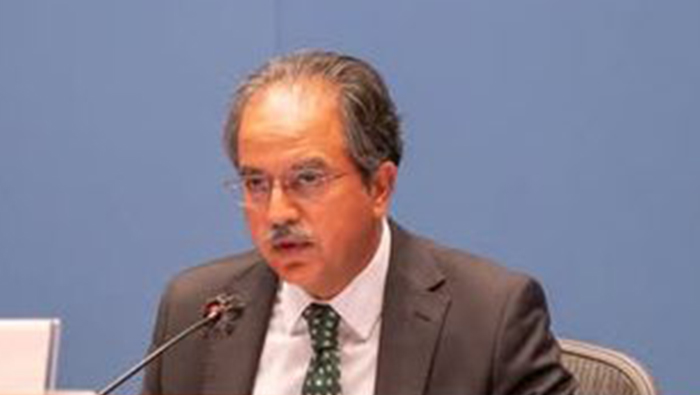
United Nations: Pakistan has told the United Nations Security Council that the maturing institutional coordination between the UN and African Union (AU), demonstrates that “regional voices can shape global action when guided by mutual respect and shared purpose”.
“This cooperation has been vital in responding to African crises,” Ambassador Asim Iftikhar Ahmad, permanent representative of Pakistan to the UN, said in a debate on Cooperation between the United Nations and Regional and Subregional organizations on Tuesday.
Conflicts in the Horn of Africa, Sudan, South Sudan and the Great Lakes region – including the Democratic Republic of the Congo – have caused widespread displacement and multiple humanitarian emergencies.
However, the Pakistani envoy voiced concern that responses to African crises are still filtered through the lenses of geopolitical competition, commercial interests and selective humanitarianism.
The Council must move away from externally imposed models of stabilization and towards models endorsed and owned by African actors, he stressed.
“Sustainable peace cannot be imposed; it must be locally owned and regionally reinforced,” Ambassador Asim Ahmad said, adding, “A shift of penholdership on African issues to African members of the Security Council can be instrumental in this regard”.
Africa’s common positions and strong voice on other key objectives of the organization – particularly on development – reinforces the fundamental interlinkage between durable peace and security and development , the Pakistani envoy said, underscoring that Africa and African Union are indispensable partners of the UN in the peacebuilding endeavors and for advancing, conflict prevention and peaceful settlement of disputes.
Pakistan, he said, coordinates closely and consults African countries concerned on mandate renewals, sanctions, and country-specific resolutions. Pakistan also continues its longstanding contribution to peacekeeping and peacebuilding in Africa.
At the outset, UN’s Special Representative to the African Union, Parfait Onanga-Anyanga, said that conflicts in Africa cannot be solved through military solutions and peace and security on the continent “demands a proactive preventative” approach.
He warned that “concerns remain in some parts of the continent about the number and complexity of conflicts.”
Onanga-Anyanga said these conflicts were often worsened by “weak or ineffective State authority, violence extremism conducive to terrorist activities, the inequitable management of natural resources, organized crime, the impact of climate change, acute food insecurity and, in some cases, denial of fundamental human rights.”
“No military solution whatsoever can resolve underlying causes of the conflict in the DRC or elsewhere in Africa,” he said. “I call upon this Council to continue to leverage its influence towards peaceful settlement of outstanding issues between the parties.”
The Special Representative highlighted two critical conflict-related issues to Council members: climate change as a conflict multiplier and the challenges faced by women and girls in battle-scarred regions, noting the consistent spillover effects of climate-induced insecurity across all these crises.
Speaking for the AU, Ambassador Mohamed Fathi Ahmed Edrees told the Council that “Africa is facing an unprecedented wave of threats to its security” adding that “solutions are needed to achieve greater stability.”
The UN and the AU have long collaborated on issues affecting the continent and according to the UN’s Onanga-Anyanga “significant progress has been made, particularly in supporting recent free, fair, and credible elections across the continent—in Botswana, Ghana, Mauritius, and most recently Malawi, where a new president was inaugurated last week.”
Onanga-Anyanga said that fostering consensus was more important than ever.
“The strong and enduring partnership between the United Nations and the African Union, as well as with other regional organizations, constitutes the foundation of effective and networked multilateralism, essential to address today’s complex, evolving and interconnected threats to peace, security, development and human rights, particularly in Africa,” he said.
In December 2023, the UN Security Council adopted a resolution to enhance cooperation between the UN and AU.
Addressing the Council, Martha Pobee, a UN Assistant Secretary-General with a brief focusing on Africa said that the resolution (2719) was conceived “as a means to address a longstanding gap in the African Union’s peace and security architecture to better to respond to armed conflicts on the African continent, with the support of the broader international community, and this Council in particular.”
Work is continuing on the operationalization of the resolution across four key workstreams with some progress reported.